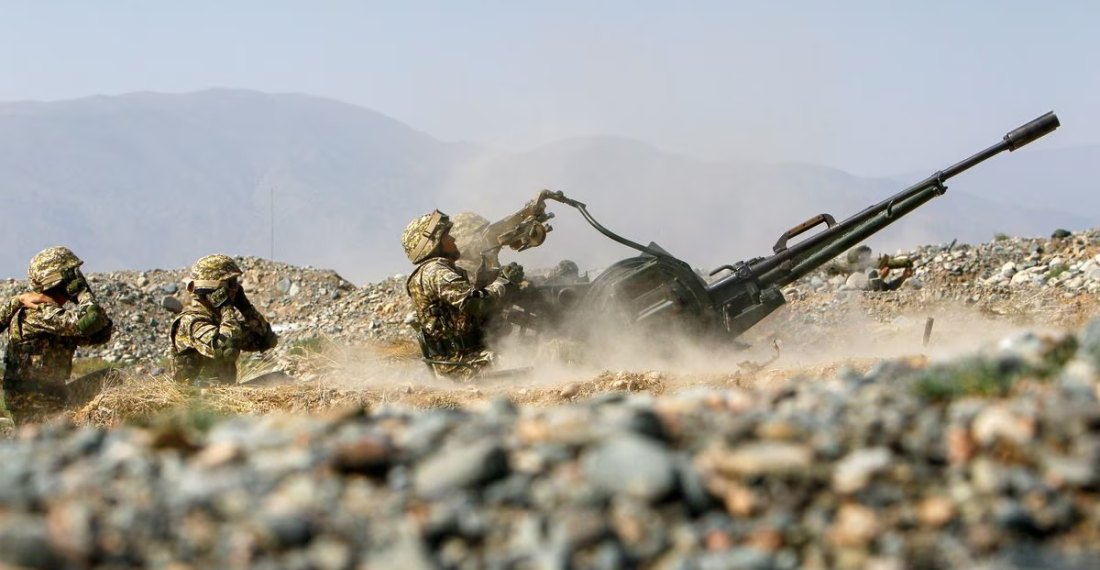Anatoly Sidorov, the Chief of Staff of the Collective Security Treaty Organization (CSTO) has announced that Kyrgyzstan has volunteered to host the "Indestructible Brotherhood" drills later this year. A date for the drills was not given.
Speaking in a press briefing on Tuesday (14 February), Sidorov said, "the CSTO Indestructible Brotherhood drill is planned on the territory of Kyrgyzstan, where tasks of post-conflict regulation in crisis zone, peacekeeping operations will be practiced."
The "Indestructible Brotherhood" drills were originally intended to be held in Armenia, but on 10 January Armenia informed the CSTO that hosting such drills on their territory this year and in the near future would be "inappropriate".
Relations between Armenia and Azerbaijan remain fraught amid what Armenia argues constitutes a "blockade" of the Armenian-populated Nagorno-Karabakh region. Azerbaijan denies this, arguing that the self-proclaimed eco-protesters on the Lachin Corridor are permitting passage for humanitarian goods.
Kyrgyzstan was also supposed to hold a similar CTSO exercise last year, but cancelled it amid a violent border conflict with another bloc member, Tajikistan. Alongside Russia and Armenia, the bloc also includes Belarus and Kazakhstan.
Will there be CSTO involvement in Ukraine?
When asked about the possibility of CSTO involvement in Moscow's so-called "special military operation" in Ukraine, Sidorov replied, "I don't know about this [...] If it concerns my personal opinion, then there is simply no such need at this stage." He also said that Russia had not previously requested help from the bloc to support its campaign in Ukraine, arguing that Russia already has everything necessary to reach the goals of its "operation".
In the past week, Russia has sustained some of the highest daily casualty figures in Ukraine since the start of the war, despite making very slow progress on the ground.
In an intelligence briefing on Tuesday, the UK Ministry of Defence said that Russian troops are being ordered to advance in most sectors of Ukraine's front line, but they have not amassed "sufficient offensive combat power on any one axis to achieve a decisive effect".







